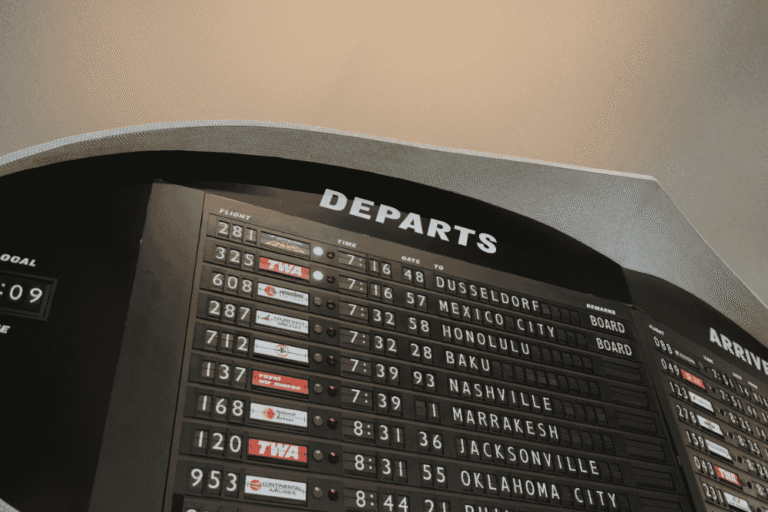How to Avoid Flight Cancellation Fees: A Traveler’s Guide
Flight cancellations can cause significant stress, especially when unexpected fees add to your travel expenses. Learning how to avoid flight cancellation fees is essential for every traveler who wants to protect their budget and maintain flexibility in their travel plans. This comprehensive guide covers proven strategies to minimize or completely avoid cancellation charges, helping you travel smarter and save money when plans change unexpectedly.
Understanding Flight Cancellation Fees
Before exploring ways to avoid cancellation fees, it’s important to understand what they are and why airlines charge them. Flight cancellation fees are penalties charged when a passenger cancels a flight booking after a certain deadline or under specific conditions. These fees vary widely based on the airline, ticket type, and how close you are to the departure date.
Why Airlines Charge Cancellation Fees
Airlines impose cancellation fees to cover administrative costs and compensate for potential lost revenue caused by last-minute cancellations. Tickets that are non-refundable typically come with higher cancellation fees or result in losing the entire ticket price.
How Cancellation Fees Differ
- Non-refundable tickets: Often come with the highest penalties, sometimes forfeiting the full fare.
- Refundable or flexible tickets: Allow cancellations with reduced or no fees but usually cost more upfront.
- Low-cost carriers: Tend to have stricter policies and higher fees compared to traditional airlines.
- Timing: The closer to departure you cancel, the higher the fees tend to be.
Understanding these distinctions helps you select the ticket type best suited for your travel needs and risk tolerance.
Book Flexible or Refundable Tickets
One of the most effective ways to avoid flight cancellation fees is to book flexible or refundable tickets. While these options often carry a higher price tag, their flexibility can save you money and headaches if your plans change.
What Is a Flexible Ticket?
Flexible tickets allow you to change or cancel your flight with minimal or no penalty, depending on the airline’s specific policies. This flexibility is especially valuable if your travel dates are uncertain or subject to change.
When Should You Opt for Refundable Tickets?
Refundable tickets let you cancel and receive a full or partial refund. If your trip is tentative or booked well in advance, paying extra for refundable tickets can protect you from losing your entire fare.
Balancing Price and Flexibility
It’s important to weigh the upfront cost of flexible tickets against potential savings from avoiding cancellation fees. For frequent travelers or those with uncertain schedules, flexible tickets often provide better value.
Use Flight Insurance or Travel Protection Plans
Travel insurance or flight protection plans are designed to mitigate losses from unexpected cancellations caused by illness, emergencies, or other unforeseen events.
Types of Travel Insurance Coverage
- Trip cancellation insurance: Reimburses non-refundable costs if you cancel for covered reasons.
- Cancel-for-any-reason (CFAR) insurance: Provides broader coverage but typically at a higher cost.
- Flight delay and missed connection coverage: Helps with rebooking fees and other related expenses.
How Insurance Helps You Avoid Cancellation Fees
With proper insurance, you may recover costs that airlines would otherwise withhold as cancellation fees. This protection can save you a substantial amount if you need to cancel.
Tips for Choosing Insurance
- Review policy exclusions and covered reasons carefully.
- Purchase insurance soon after booking for full coverage.
- Compare policies to find the best fit for your travel needs.
Know the Airline’s Cancellation Policy
Each airline has unique cancellation policies, including timelines, fees, and refund eligibility. Understanding these policies before booking helps you avoid surprises and plan your travel more effectively.
What to Check in Cancellation Policies
- Grace periods: Many airlines offer free cancellation within 24 hours of booking.
- Time limits: How far in advance you can cancel without fees.
- Refund rules: Conditions under which refunds are issued.
- Change fees: Costs associated with rescheduling flights.
Airline Policy Differences
Legacy carriers often provide more flexible cancellation options than budget airlines, which may impose harsher penalties. International flights might also have different cancellation rules.
How to Access Policy Information
- Visit the airline’s official website under “Terms and Conditions.”
- Contact customer service for clarifications.
- Read customer reviews for real-world insights.
Cancel Within the Allowed Time Frame
To effectively avoid flight cancellation fees, it’s critical to cancel within the airline’s free cancellation window, typically 24 hours after booking.
Making the Most of Grace Periods
- Many airlines provide a 24-hour free cancellation period if booked at least seven days before departure.
- Acting quickly to cancel within this window can save you from hefty fees.
Examples of Free Cancellation Windows
- Major U.S. carriers like Delta, American Airlines, and United enforce this 24-hour rule.
- International airlines’ policies vary, so always verify before booking.
Missing these windows often results in forfeiting the ticket value or paying steep penalties.
Rebook or Change Flights Instead of Canceling
If your travel plans change, consider rebooking or modifying your flight rather than canceling outright. Many airlines charge lower fees for flight changes compared to cancellations.
Advantages of Flight Changes
- Preserves the value of your ticket.
- Avoids losing your entire fare.
- Offers flexibility to adjust travel dates without starting from scratch.
Minimizing Change Fees
- Airlines occasionally waive change fees during special promotions or due to extraordinary circumstances.
- Choose tickets with included change options or low change fees.
- Booking with airlines known for flexible policies helps.
When Is Rebooking the Best Option?
If your plans shift slightly or you want to avoid cancellation charges, rebooking can be a more economical and convenient choice.
Conclusion
Avoiding flight cancellation fees is crucial for stress-free, budget-conscious travel. By booking flexible or refundable tickets, purchasing appropriate travel insurance, understanding airline policies, and acting within cancellation windows, you can protect yourself from costly fees. Whenever possible, consider rebooking flights instead of canceling outright to save money and retain ticket value. These smart booking strategies empower you to travel confidently and economically.
Frequently Asked Questions (FAQs)
How can I avoid flight cancellation fees?
Book flexible tickets, use travel insurance, cancel within airline grace periods, and opt to change flights rather than cancel when possible.
What is a flexible ticket?
A flexible ticket allows you to modify or cancel your booking with minimal fees, depending on airline policies.
Does travel insurance cover flight cancellations?
Some travel insurance policies cover cancellations for specific reasons; it’s important to review your policy’s terms.
Can I get a refund if I cancel early?
Many airlines offer a 24-hour free cancellation window allowing refunds if you cancel within that timeframe.
Are cancellation policies the same for all airlines?
No, cancellation policies vary widely by airline and ticket type. Always review the specific airline’s terms before booking.






